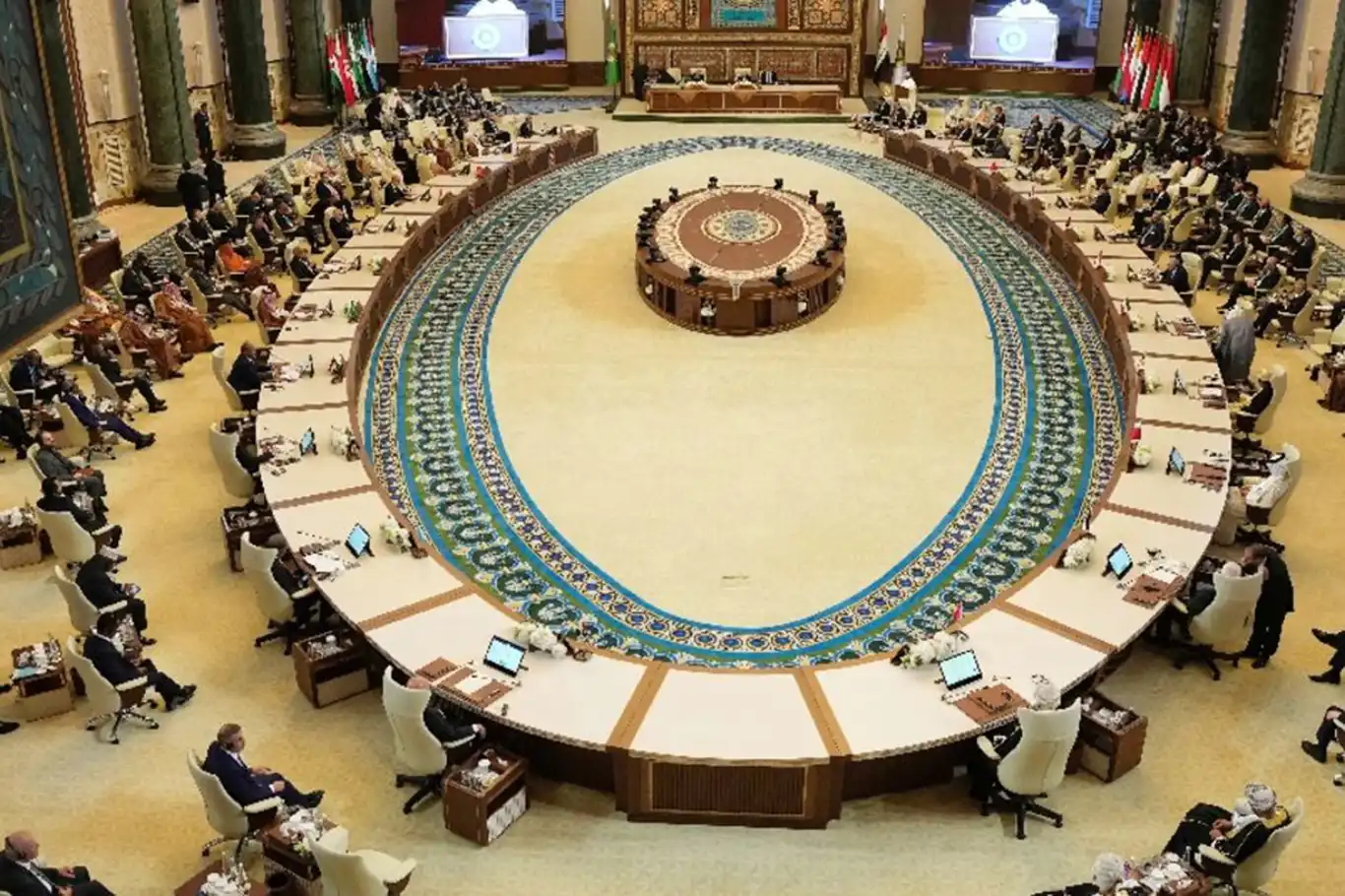Arab Summit issues urgent call to end Israeli genocide in Gaza


The 34th Arab Summit, convened Saturday in the Iraqi capital, issued a powerful and unified demand for an immediate halt to Israel’s ongoing assault on the Gaza Strip.
The summit’s final communiqué, dubbed the “Baghdad Declaration,” condemned the ongoing Israeli genocide and called for the urgent opening of all border crossings to facilitate humanitarian aid delivery to Gaza’s beleaguered population.
The declaration, comprising 32 points, dedicated its first 14 to the Palestinian cause, underscoring its centrality to Arab nations and regional stability. It rejected any displacement of Palestinians from their land, labeling forced displacement a “crime against humanity” and a form of “ethnic cleansing.” The summit accused Israel of employing starvation and scorched-earth tactics to coerce Palestinians into abandoning their homeland.
Arab leaders endorsed Mahmoud Abbas’s proposal for an international peace conference to advance a two-state solution, advocating for a fully sovereign Palestinian state based on the 1967 borders, with East Jerusalem as its capital. They also demanded the deployment of UN peacekeeping forces in the occupied Palestinian territories until this solution is realized. The declaration urged the UN Security Council to set a clear timeline for implementing these steps.
The summit reaffirmed unwavering support for Palestinian rights, including freedom, self-determination, and the right of return and compensation for refugees. It condemned Israel’s “illegal actions” that deny Palestinians basic rights, such as life and dignity, and called on the international community to stop the bloodshed and ensure unhindered aid delivery across Gaza.
Participants backed a joint Arab-Islamic plan, adopted in March 2025 by the Arab League and the Organization of Islamic Cooperation, for Gaza’s recovery and reconstruction. They welcomed proposals for a dedicated reconstruction fund, building on initiatives from Iraqi Prime Minister Mohammed Shia’ Al-Sudani and prior commitments from summits in Cairo (2023) and Saudi Arabia (2024). The leaders also supported coordinated efforts to empower UN agencies, particularly UNRWA, to expand humanitarian operations.
A key focus was the establishment of an open working group, in collaboration with the UN, to create a fund for Gaza’s 40,000 orphans and to provide prosthetics for injured civilians, especially children. The summit praised Jordan’s “Restore Hope” initiative for supporting Gaza’s amputees and encouraged further humanitarian efforts.
The declaration called for Palestinian factions to unite under a national project to achieve statehood and freedom, while welcoming the UN General Assembly’s May 10, 2024, resolution—supported by 143 countries—backing Palestine’s bid for full UN membership.
The summit concluded with a resolute commitment to a just and comprehensive resolution to the Palestinian issue, rooted in the Arab Peace Initiative and UN resolutions, to secure lasting peace and stability in the region. (ILKHA)
LEGAL WARNING: All rights of the published news, photos and videos are reserved by İlke Haber Ajansı Basın Yayın San. Trade A.Ş. Under no circumstances can all or part of the news, photos and videos be used without a written contract or subscription.
The Gaza Health Ministry announced that 125 more civilians were martyred in the last 24 hours as a result of fresh Israeli air and ground attacks across the besieged Gaza Strip.
Spanish Prime Minister Pedro Sánchez is scheduled to arrive in Türkiye on Friday for a high-level meeting with Turkish President Recep Tayyip Erdoğan, according to reports from Spanish media outlets, including El País.
Turkish Foreign Minister Hakan Fidan met with Marko Đurić, Serbia’s Minister of Foreign Affairs, in Belgrade on Monday to discuss strengthening bilateral relations and enhancing diplomatic and economic cooperation between the two nations.
The International Union of Muslim Scholars (IUMS) condemned the ongoing genocide in Gaza, holding not only the Israeli occupation regime but also the Islamic world and the broader international community morally and politically accountable for their silence and failure to intervene.